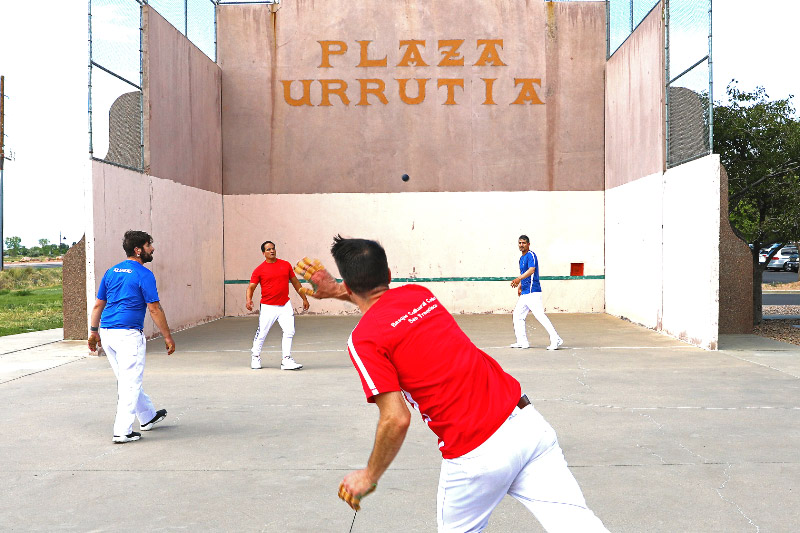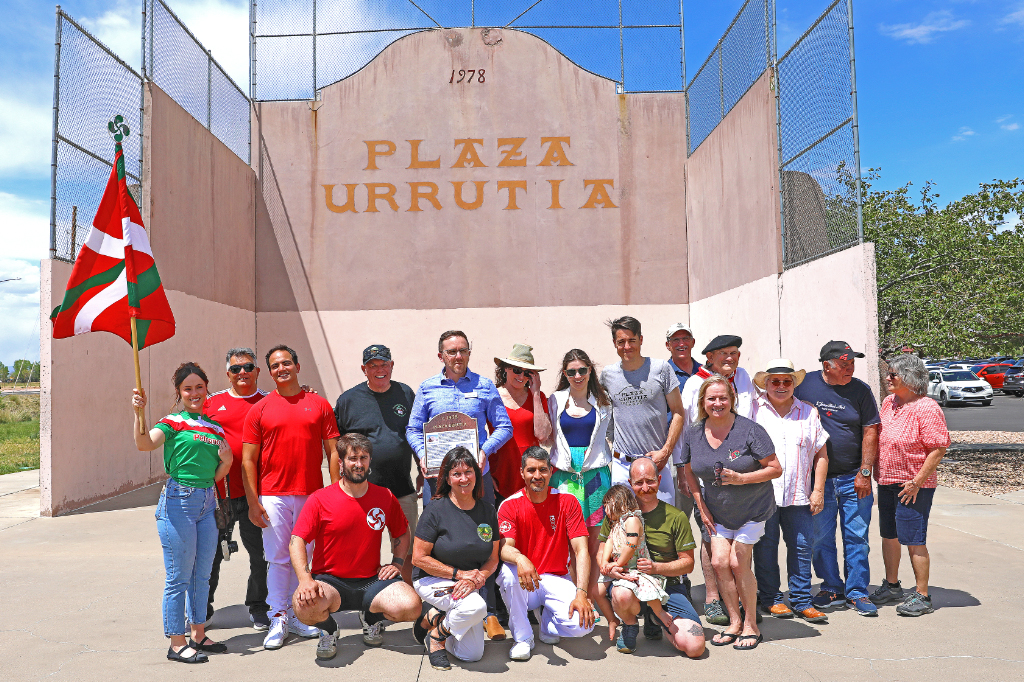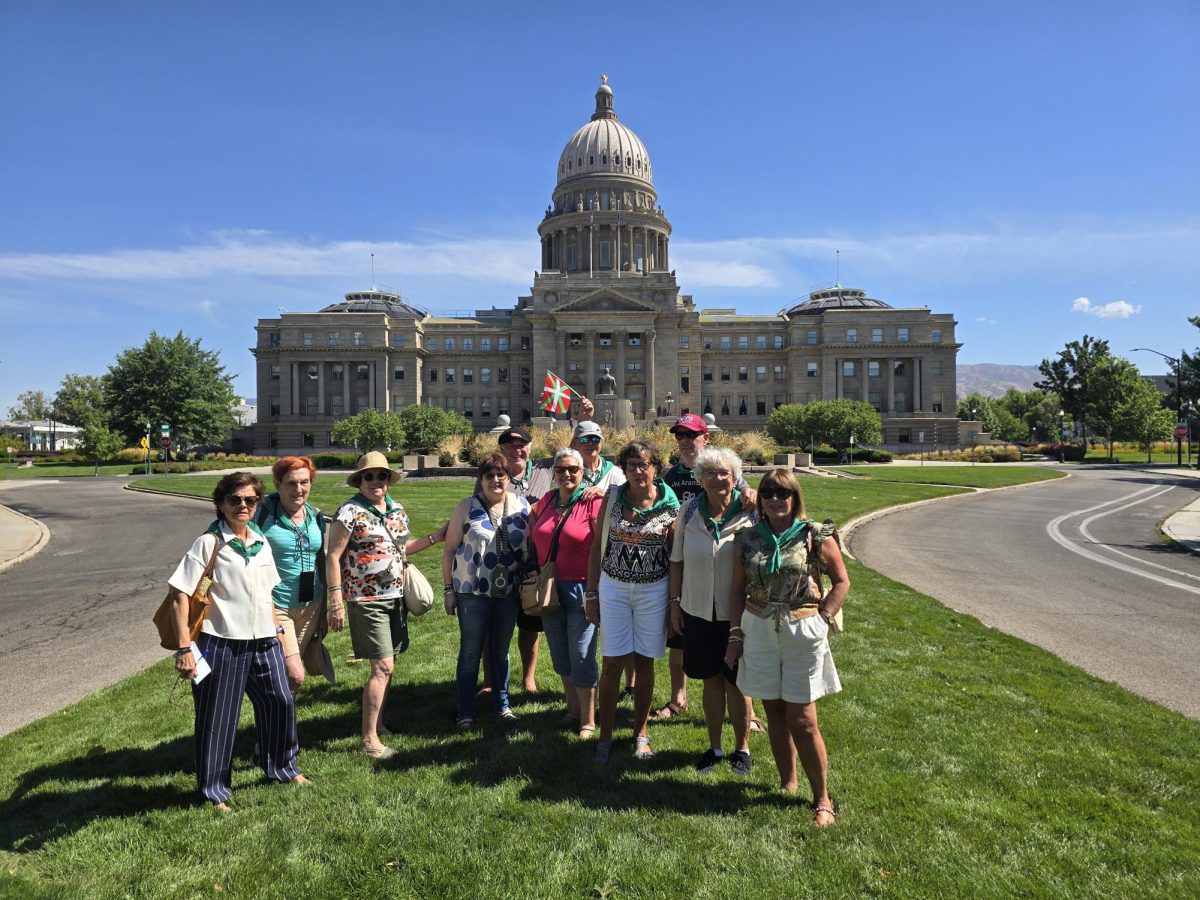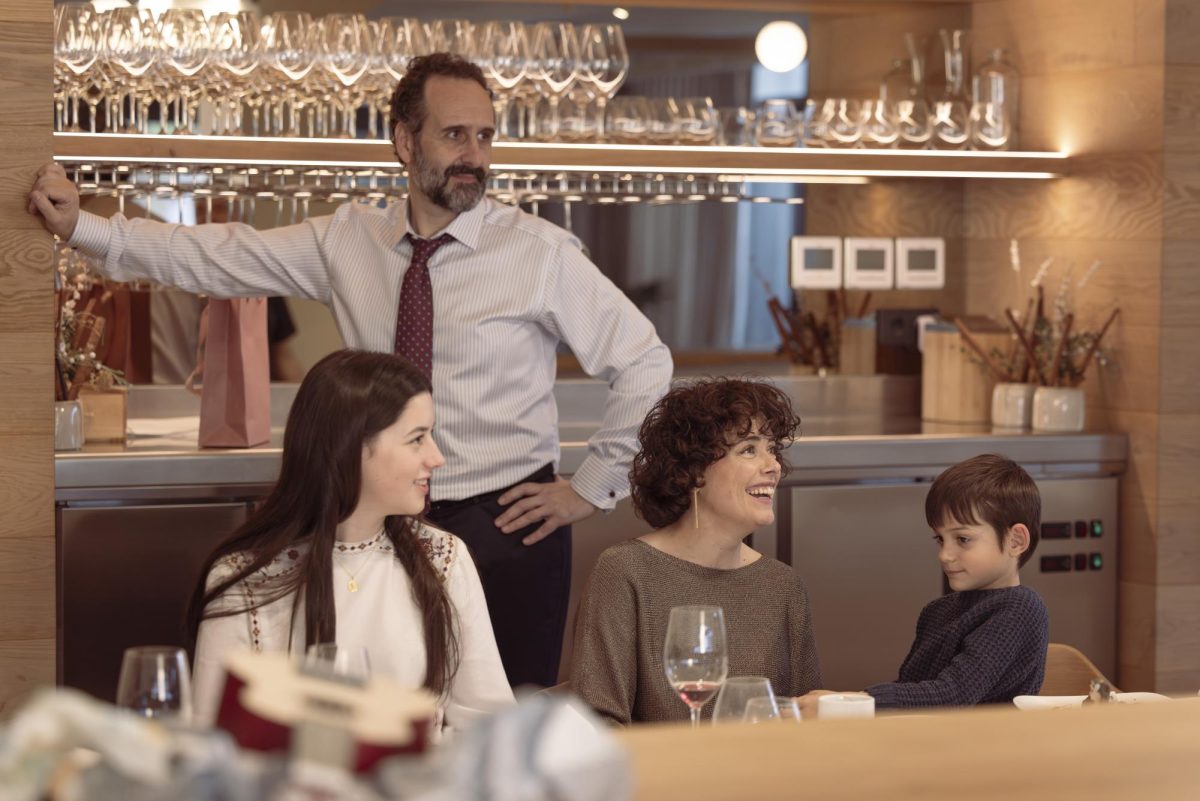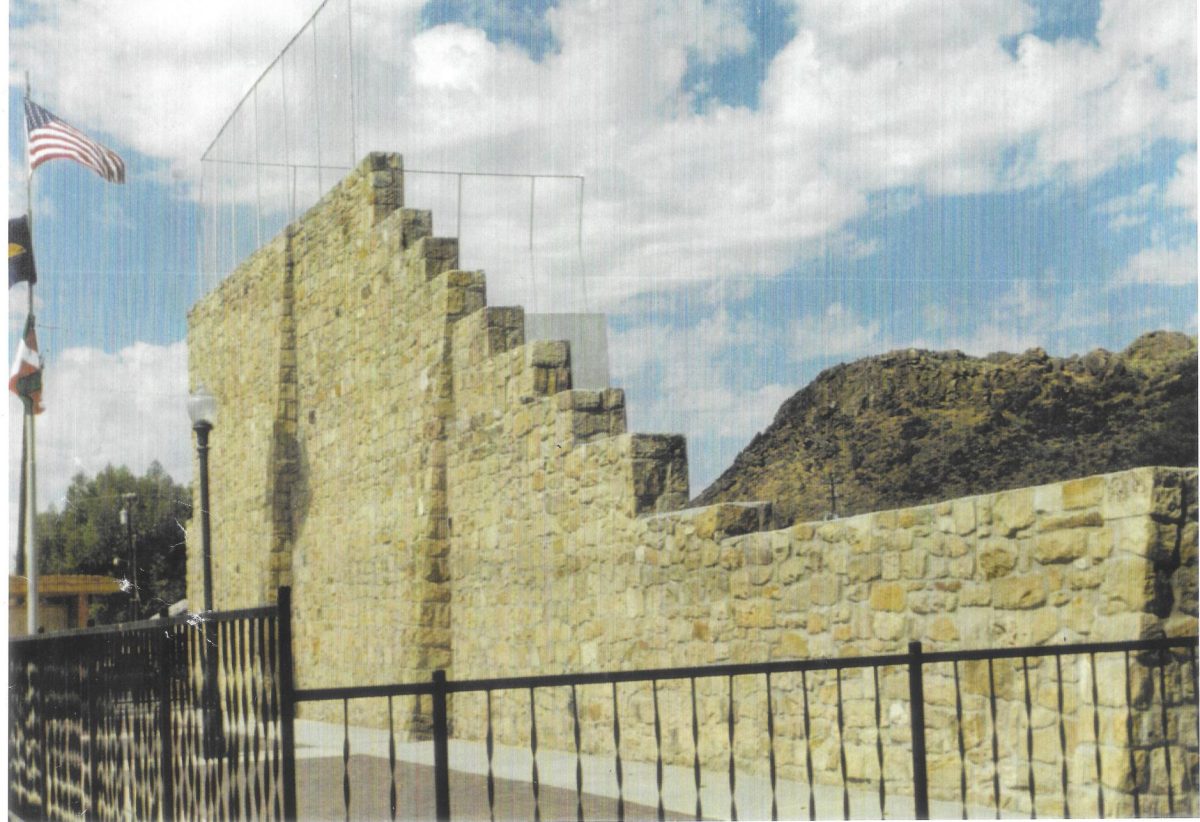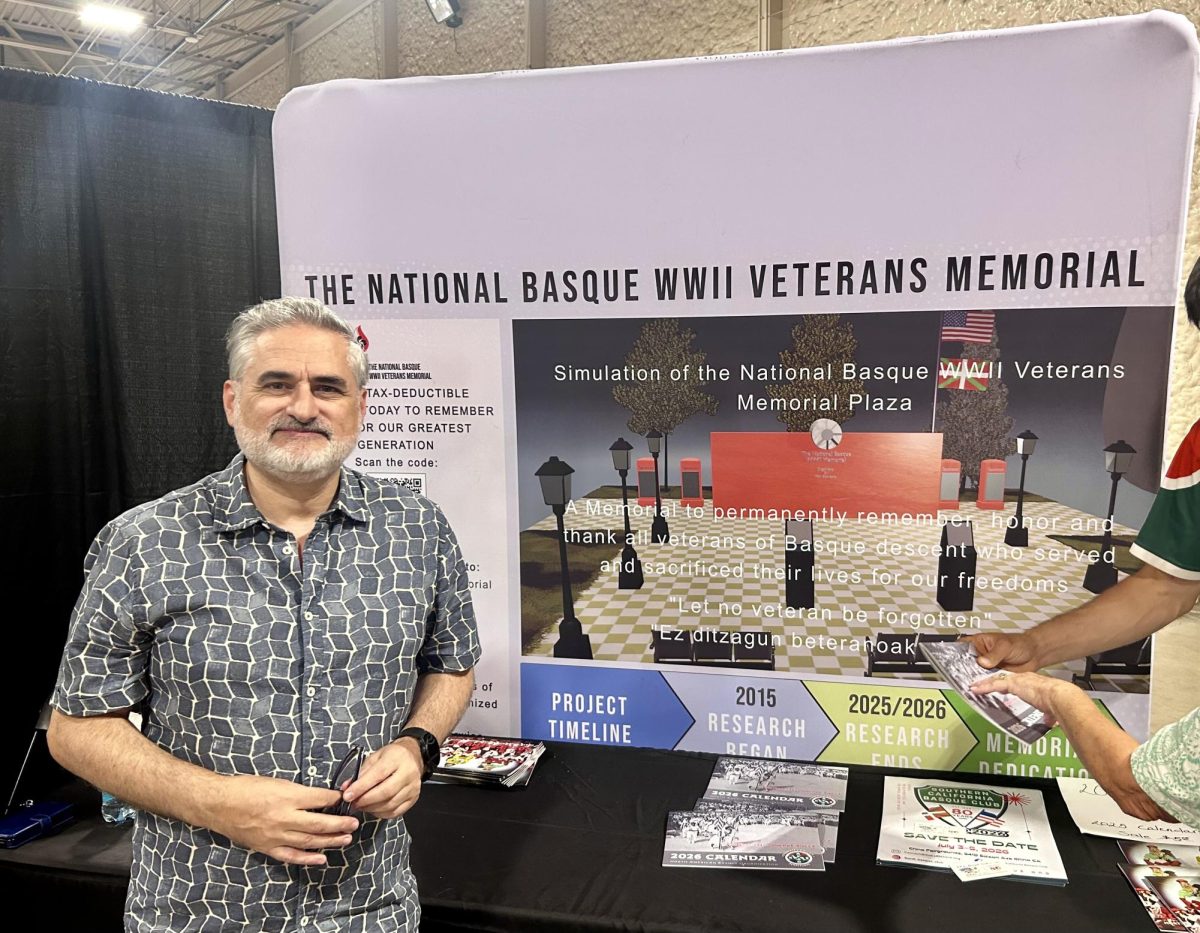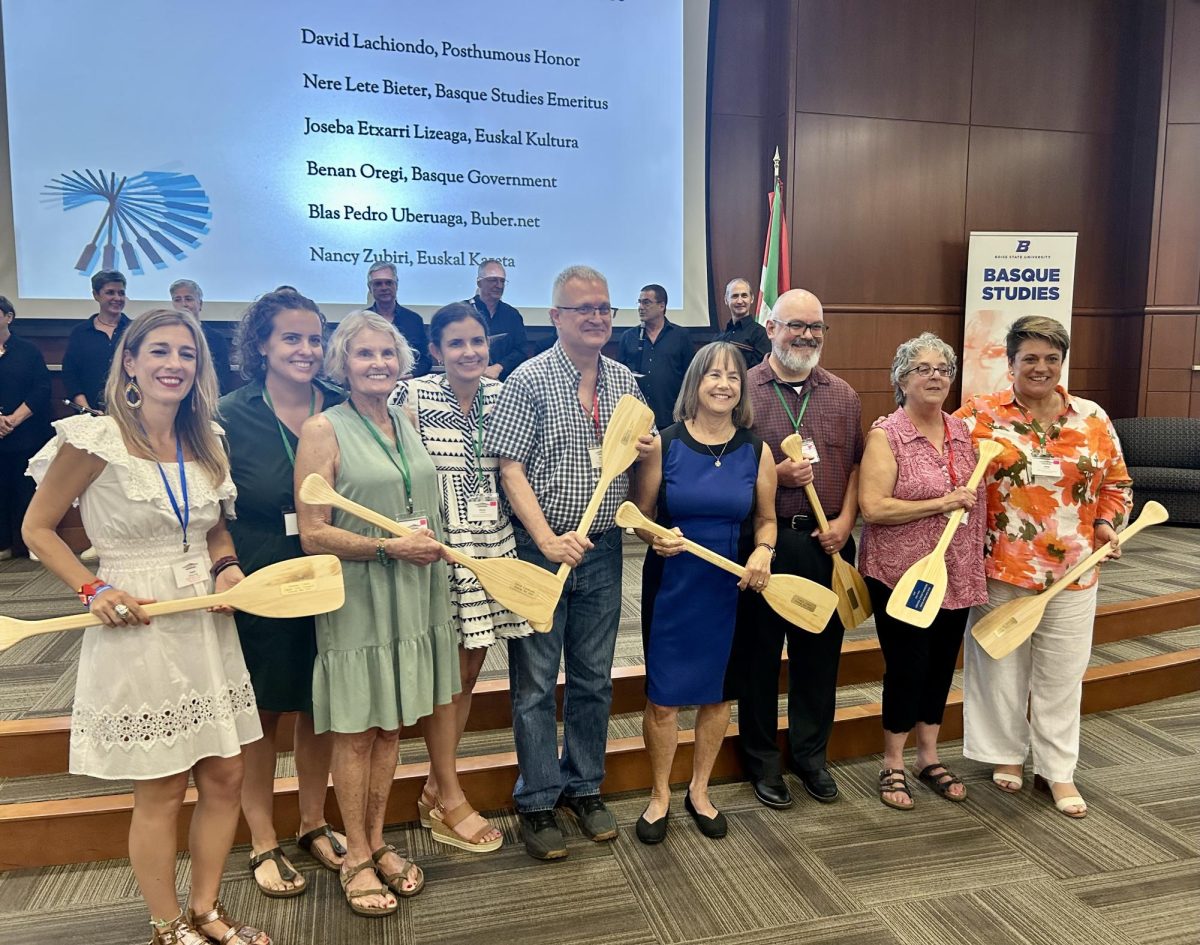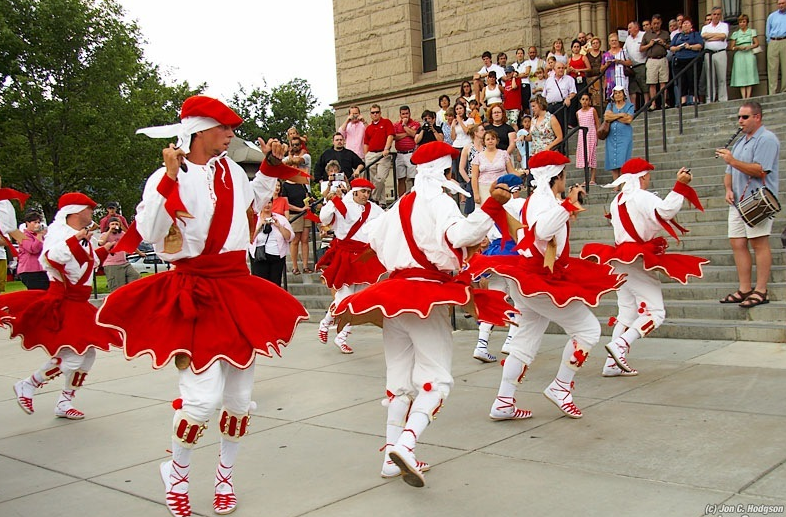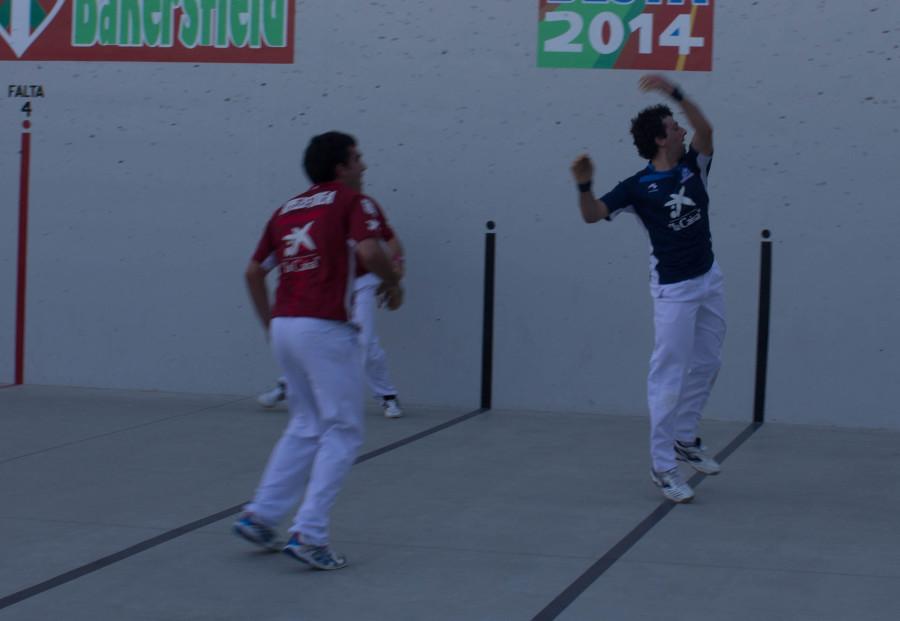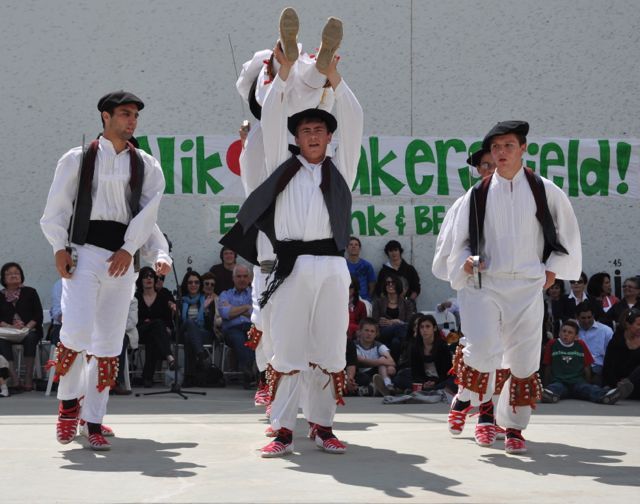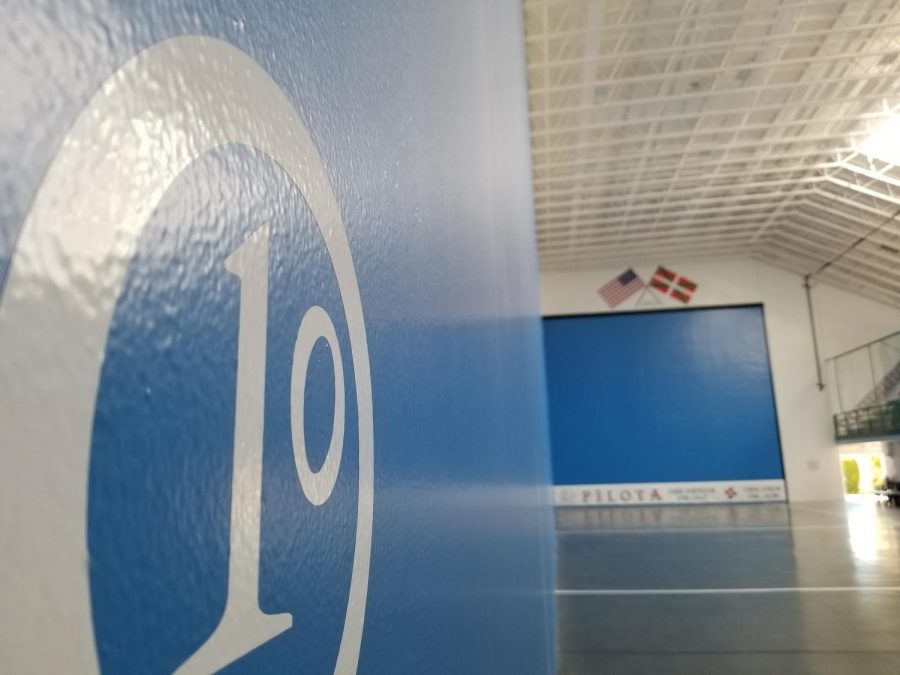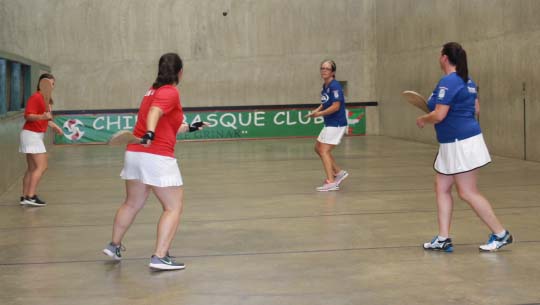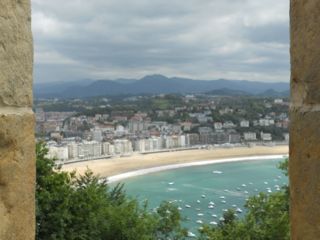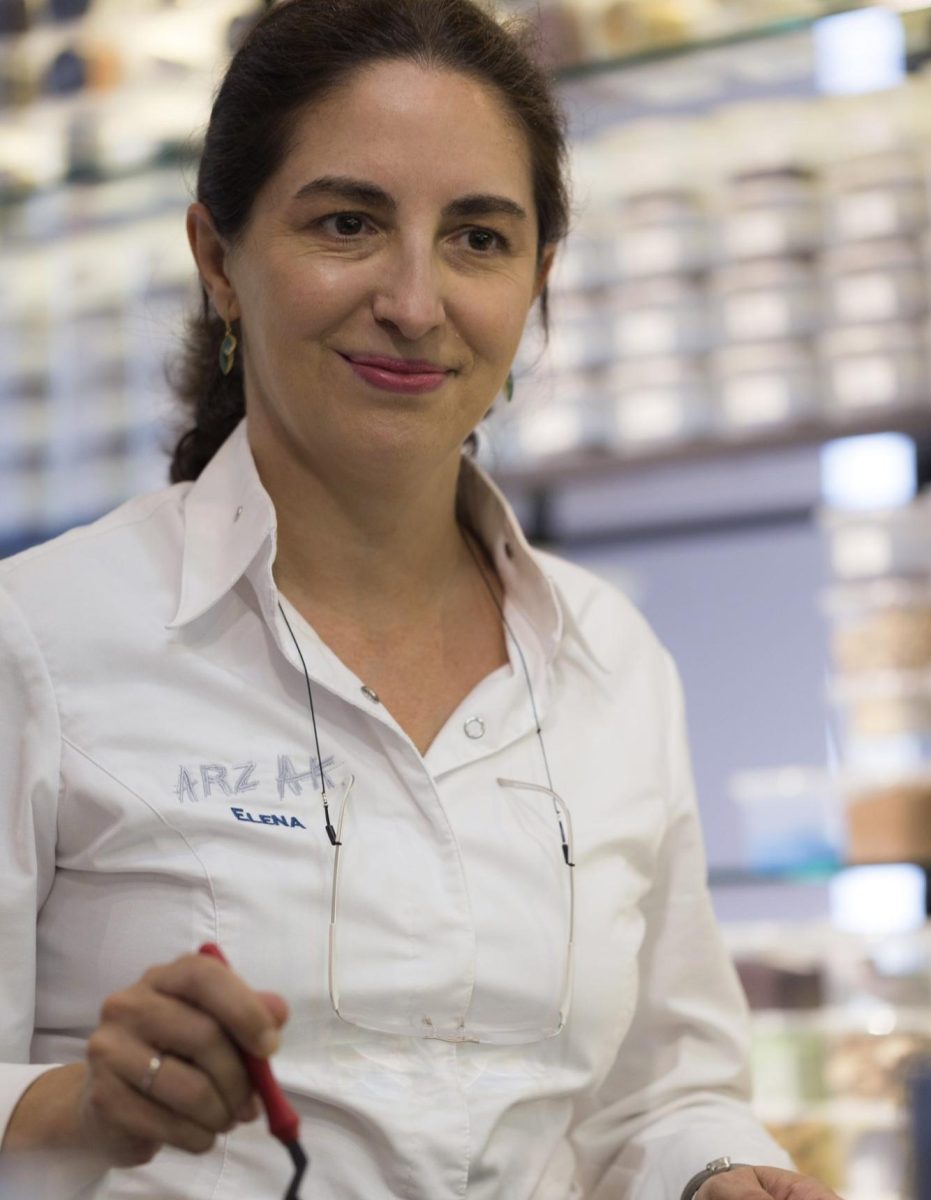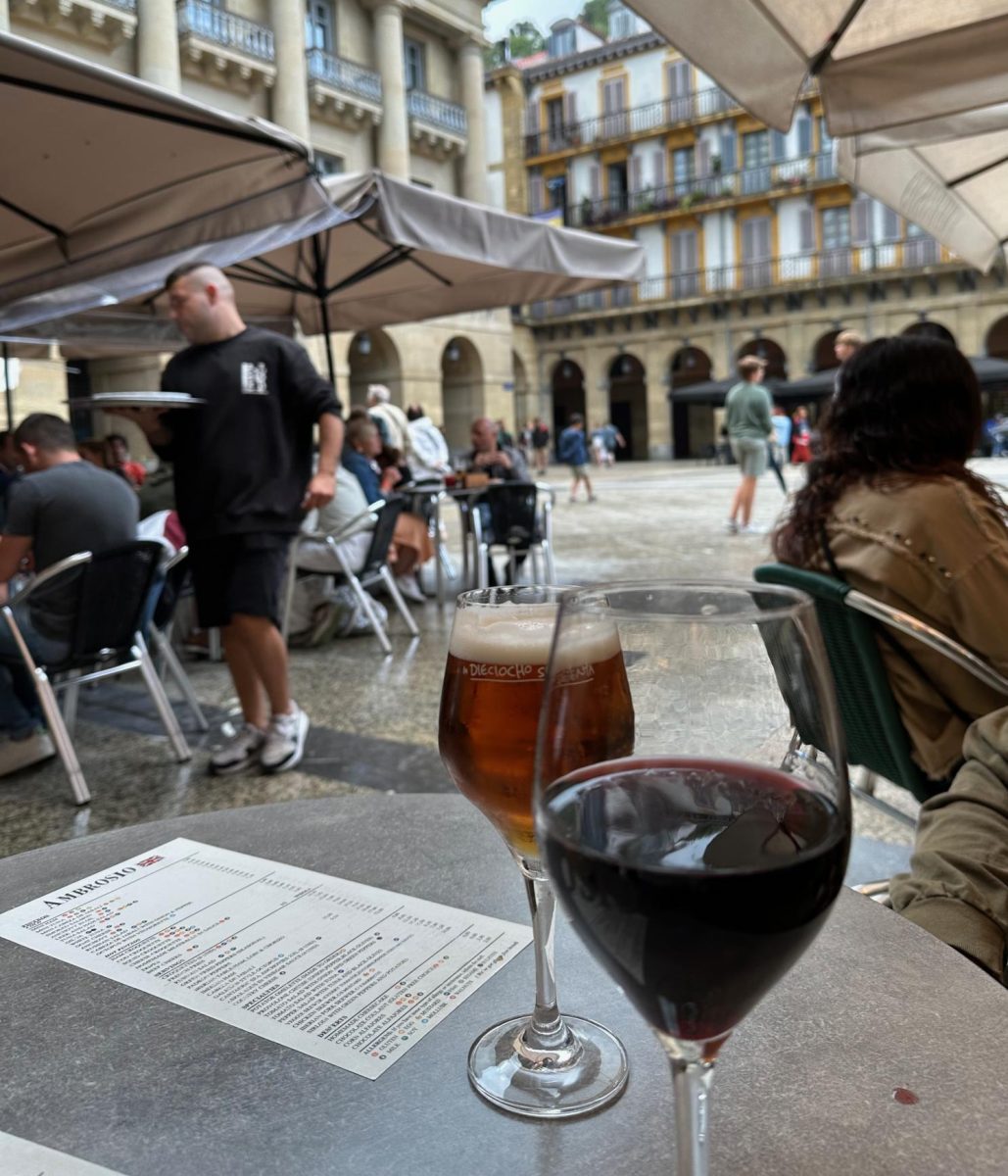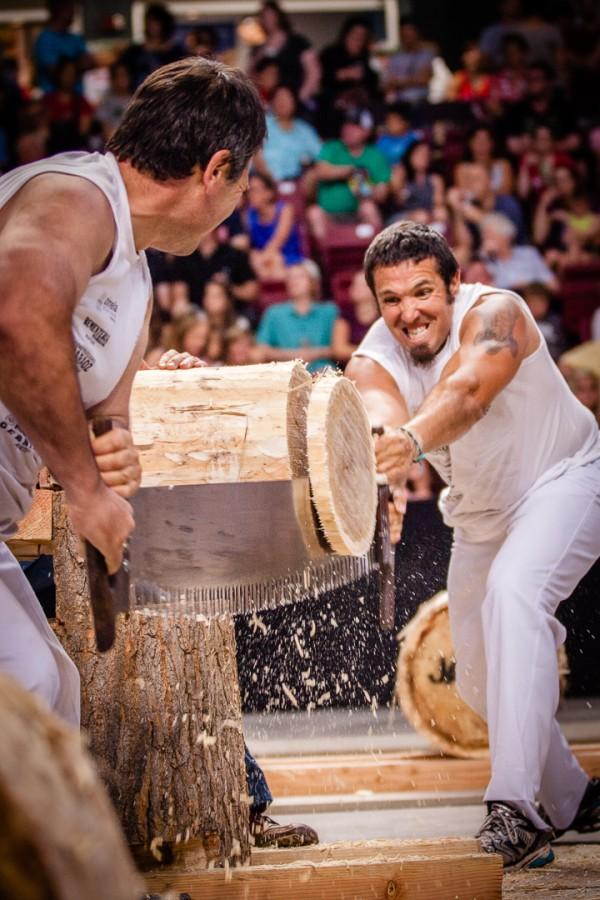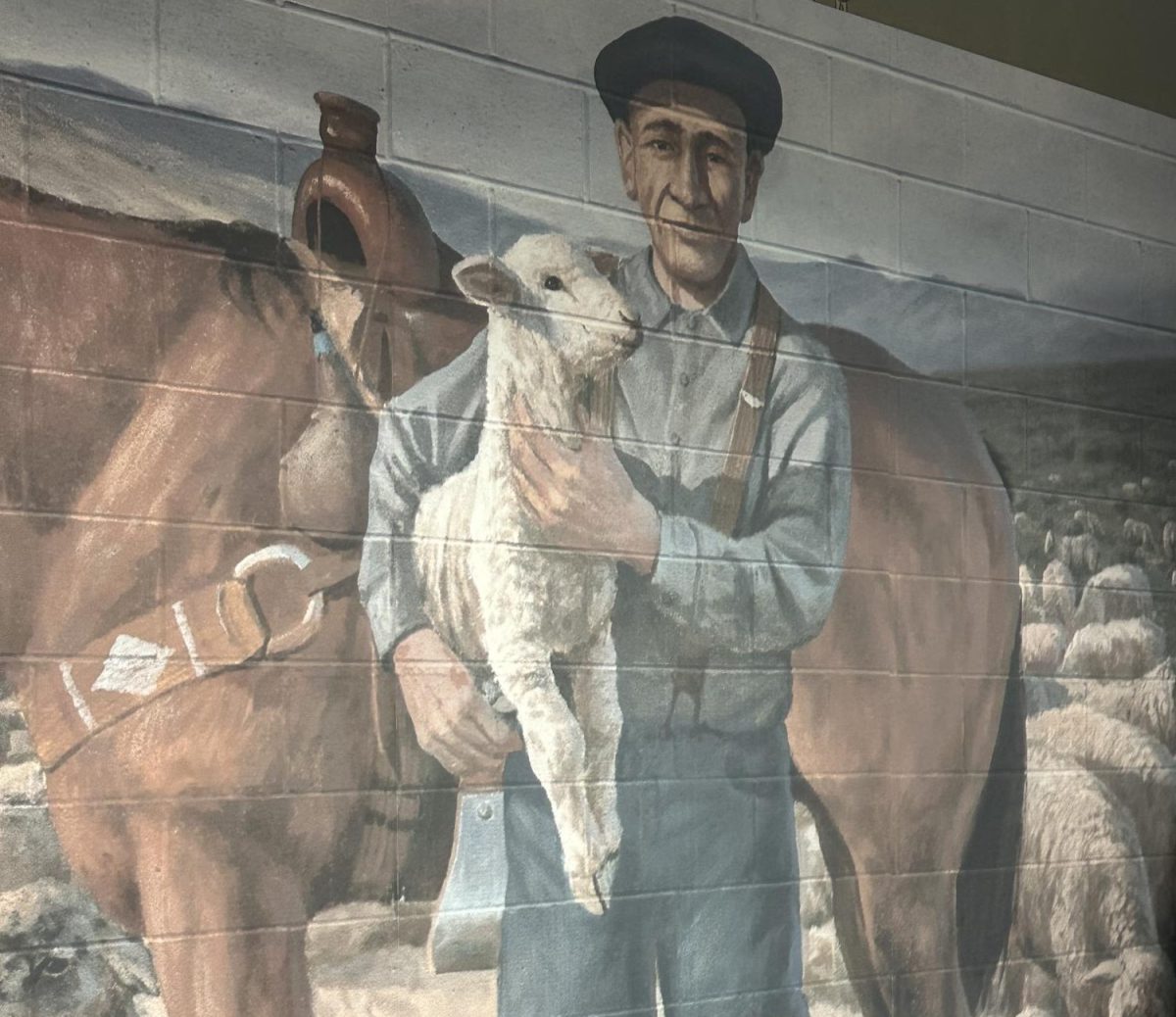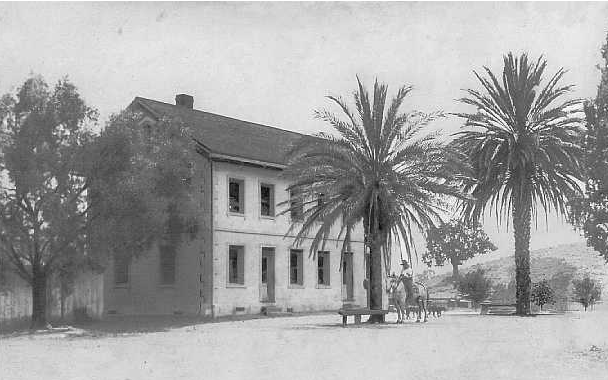In 2021, while driving back to Colorado from her daughter’s wedding in Palm Springs, Colorado Basque Club President Mayi Berterretche Petracek stumbled upon Plaza Urrutia in the town of Grand Junction. She had known that there was a Basque handball court somewhere in the area, but had never seen it. The court had fallen into disuse, but Petracek decided then and there she was going to change that. “We have to have a picnic here,” Petracek recalled thinking.
The Colorado club held a lamb barbecue picnic at the court the following year in 2022, renewing interest in the historic court from Colorado Basques. Handball players from California were invited to play a game organized by North American Basque Organizations (NABO) pilota chair Tony Huarte (Pilota is handball in Basque). The game, in which Huarte himself participated, was the first one the court had seen in decades. Local papers covered the festive event. Subsequently, at the urging of club members, the court was designated a state historical landmark in 2023. (See Huarte in the video above.)

On Sept. 21, the Colorado Basque Club will hold another celebration at the court, in true Basque fashion with food, dancers, a mus tournament and, of course, handball games. In honor of her efforts leading the Basques in Colorado and revitalizing the court, NABO will be presenting Petracek with the Al Erquiaga Bizi Emankorra Lifetime Contribution Award.
The court, known as a kantxa or fronton in Basque, was originally built in 1978 by Basque businessman and philanthropist Jean Urruty. In 1925, like many other Basques, he came to the United States and worked as a sheepherder for many years. He eventually became a prominent rancher in Colorado. His civic contributions to the Grand Junction community made him a well-respected figure, and after oil was discovered on some of his property in the 1960s, he engaged in numerous charitable efforts for the community. For example, he financed several local students’ college educations and also paid for a young man to attend law school.
In addition to his activities in Grand Junction, Urruty was also pivotal in organizing the Basque community of Colorado. Basque immigration to Colorado was much less significant than immigration to the states of California, Nevada and Idaho. Urruty singlehandedly organized the somewhat sparse number of Basques of Colorado into the Western Slopes Basque Association, organizing festivals and other gatherings mostly on his own property. He spearheaded their membership in the original group of eight clubs that formed NABO and represented the club at NABO meetings.
By building Plaza Urrutia, Urruty cemented, quite literally, his lasting legacy. He took it upon himself to build a three-walled court on farmland on his property so that local Basques could play handball. While Basques in other states built numerous courts, this was the only one in Colorado. Urruty described the construction of the handball court and his vision for the structure in a 1978 interview that is available on YouTube. He said he wanted it to be so strong that “it’ll be there when hell freezes over.” He said he wanted the court to be open to everyone, jokingly adding “except the Ku Klux Klan.” Urruty and his wife Benerita were interviewed extensively several times for the Mesa County Library Oral History Project, where you can hear the interviews in full.
One interesting feature of the court is the “kill box” at the bottom right hand of the front wall which makes the ball difficult to return if the ball is hit inside of it.
While buildings can be permanent, people are not. Urruty’s death of a heart attack in 1983 created a void of Basque leadership for the area, and the activities of Colorado’s Basque community began to fade. The Urrutys had no children, and Jean’s widow Bennie sold the land with the court on it to the city of Grand Junction. As the city grew, the court was incorporated into the southwest corner of Canyon View Park, where it stands today. Bennie Urruty died in 2004, ending all ties the court had to its original owners, although the sale had been made with an understanding that the court would be saved. But with the Western Slopes Basque Association fading into defunct status, so too did the court’s relevance.
Around 1999, the city of Grand Junction made plans to raze the court to make way for a parking lot. The court had been used to store dirt and manure and was worse for the wear. Rather than let this go forward, local Basque-Americans Maggie Doyhenard and her daughter Mona Doyhenard Dyer led an effort to save it for future generations by organizing local Basques and others in the community to dissuade the city council from going forward with the demolition. Upon seeing the dedication that so many in the community had for the court, the city relented and the court was saved.
In celebration of the fronton being saved, the community underwent major efforts to refurbish and revitalize the area around the fronton. According to Colorado State historical documents, new grass and sidewalks were put in around the court, as well as a gazebo for spectators to sit and view pilota matches. A plaque re-dedicating the fronton was installed stating “Dedicated to the Basque people and their descendants who contributed greatly to the building and development of this area.”
Finally, in celebration of their accomplishments, Doyhenard and her husband Jean Pierre Doyhenard planted a Burr Oak tree near the court, in honor of the Gernikako Arbola, the Tree of Gernika, a famous oak tree in Gernika, Bizkaia that symbolizes the resilience and freedom of the Basque people.
It was around this time in 2003 that the Colorado Basque Club was founded by Michael Matassa Jr and Chris Suazo, to replace the defunct Western Slopes Basque Association. According to Petracek, Matassa became inspired to form a club when his amatxi (“grandmother”) who was from the town of Baigorri in Baxenabarre moved in with him. For the first decade or so of its existence, the club organized about four events per year such as movie screenings and wine tastings, all centered around the city of Denver.
Petracek, a native of Chino, California’s Basque community, moved to Colorado for work in 2010. She became involved and began attending club events in 2011. Before she knew it, Petracek became the president of the club, a position that she continues to hold. Under her leadership, she has expanded the geographical bounds of the club’s activities by rotating locations around Colorado to better accommodate Basques around the state.
The picnic and handball game that Petracek organized at Plaza Urrutia in 2022 restored and reaffirmed the court’s relevance and significance, especially for Colorado’s Basque community.
Having reclaimed Plaza Urrutia, Colorado Basques Mona Doyhenard Dyer and Kristen Ashbeck sought to have the court designated as a state historical landmark, a status it earned in 2023. The Colorado Basque Club’s picnic on Sept. 21st at Plaza Urrutia is a celebration of this accomplishment.
According to Petracek, historical sites must be at least 25 years old for state recognition in Colorado, but for federal designation, a site must be 50 years old. Petracek said they are planning to file for federal landmark status in 2028.
Plaza Urrutia
Intersection of 24 and G roads
Grand Junction, Colorado

